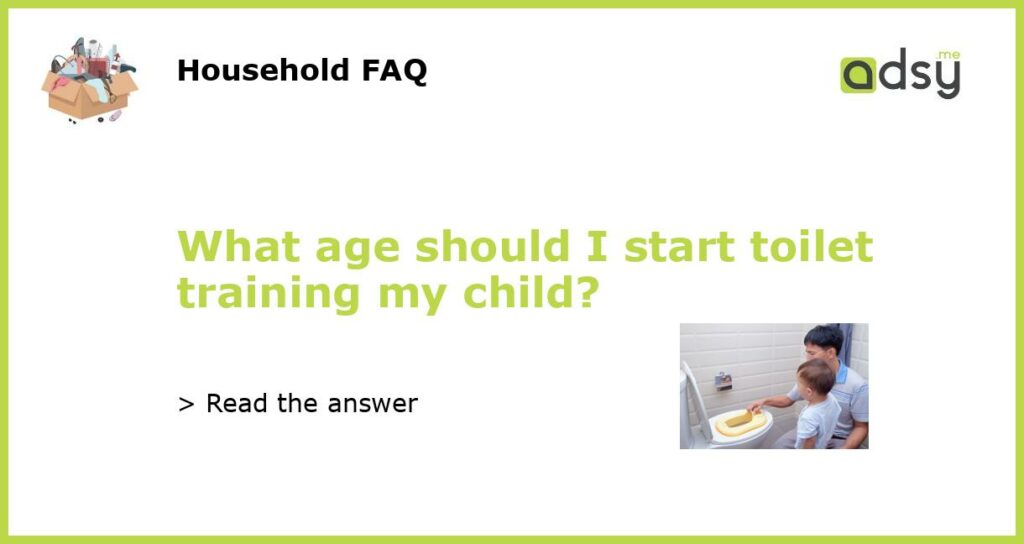At What Age Should I Start Toilet Training My Child?
Toilet training is an important milestone in a child’s development. It marks their transition from being dependent on diapers to becoming independent in using the toilet. While every child is different and may show signs of readiness at different ages, there are general guidelines to help you determine the right time to start toilet training.
Signs of Readiness
Before starting toilet training, it is important to look out for signs that your child is ready. Some signs of readiness include:
- Showing interest in the bathroom, toilets, or potty chairs
- Being able to communicate their need to go, either through words or non-verbal cues
- Remaining dry for longer periods, indicating bladder control
- Being able to follow simple instructions and understand basic concepts
- Showing the ability to undress and dress themselves
These signs indicate that your child has reached a level of physical and cognitive development necessary for successful toilet training.
The Best Age to Start
While there is no specific age at which every child should start toilet training, most children show signs of readiness between the ages of 18 months and 3 years. However, it is important to remember that every child is different, and some children may show readiness earlier or later than others.
Starting too early can lead to frustration and resistance from your child, while starting too late can interfere with their natural development. Therefore, it is important to find the right balance and observe your child’s individual cues and readiness.
Tips for Successful Toilet Training
Toilet training can be a challenging process, but with patience and consistency, it can be successful. Here are some tips to help make the process smoother:
- Create a routine: Set consistent times for your child to sit on the toilet, such as after meals or before bedtime.
- Provide praise and rewards: Encourage your child with positive reinforcement, such as stickers or small treats, when they successfully use the toilet.
- Be patient: Remember that accidents are a normal part of the learning process, and accidents should be handled calmly and without punishment.
- Keep it positive: Make toilet training a positive experience by using words of encouragement and providing a comfortable and supportive environment.
- Be prepared: Have extra clothing and cleaning supplies readily available for accidents.
When to Seek Professional Help
In some cases, toilet training may not progress as expected or may be delayed for various reasons. If you encounter challenges such as resistance, persistent accidents, or if your child is not showing progress after several months of consistent training, it may be beneficial to seek professional help.
A pediatrician or child development specialist can provide guidance and support to address any underlying issues and determine the best approach for your child’s individual needs.






